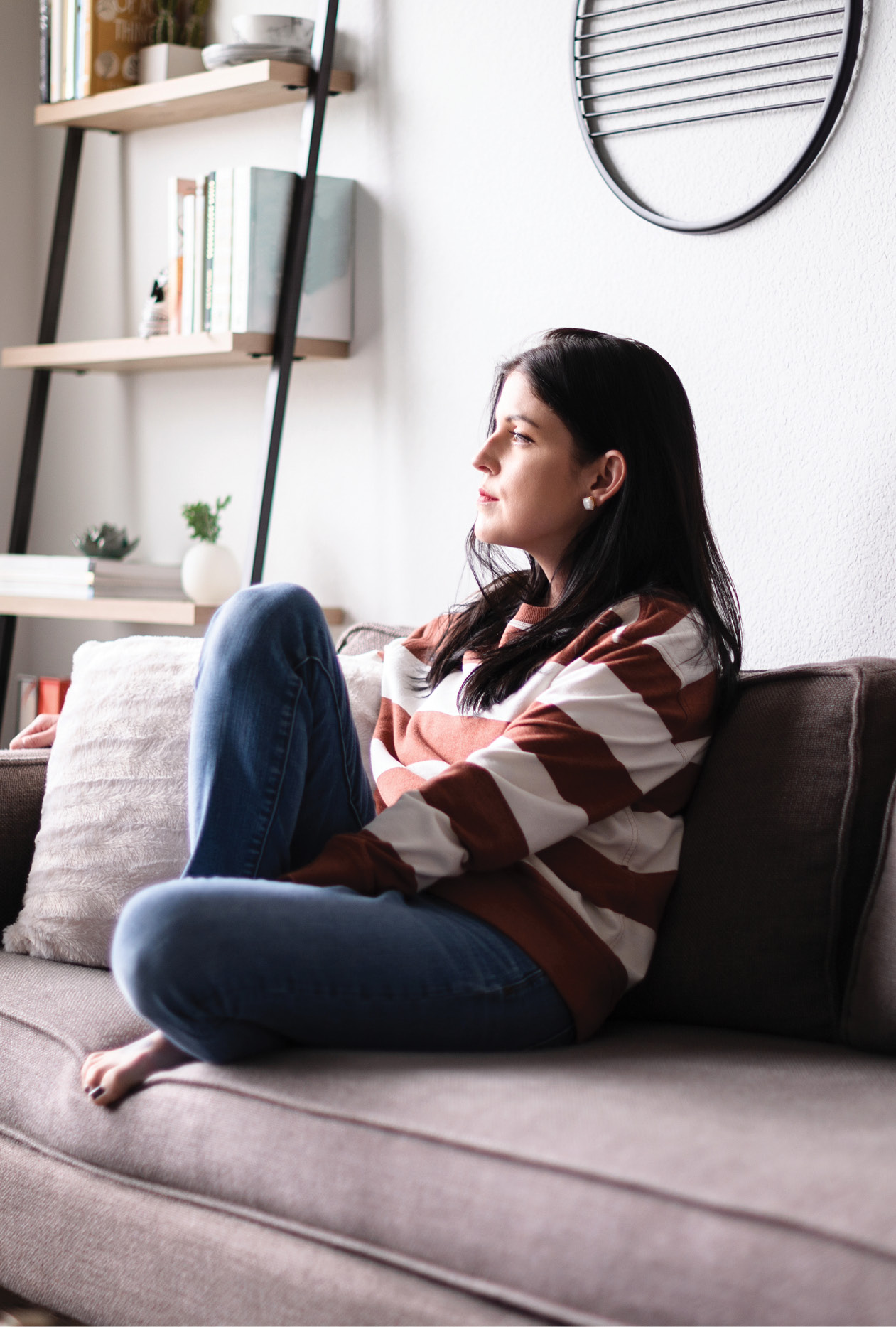The initial bout of Covid-19 was bad enough. Felicity Nelson and her partner were travelling interstate just before Christmas 2021 when they both fell ill. Twelve feverish, sweat-drenched, panic-ridden days later, the worst of the acute symptoms start to ease, and Nelson thought they were out of the woods.
In fact, the nightmare was just beginning.
Eight months later, the 31-year-old science journalist still hasn’t fully shaken SARS-CoV-2 and its after-effects – known colloquially as long Covid – out of her system.
Even today, Nelson finds herself breathless, with chest pain, at the slightest provocation. Recently, after a particularly stressful week, she was unable to work for four days in a row.
“On average it’s getting better, but you just have those bits where you go all the way back to the start,” Nelson says. “That’s the problem with long Covid – it’s not consistent, it’s a rollercoaster.”
Today Nelson is acutely aware of her mental and physical limits, and knows that if she stays out too late socialising or pushes herself too hard at work, the price is a snap-back to the fatigue, breathlessness and chest pain that was severe enough she stopped work for six weeks at the start of the year, and then remained part-time for many months after.


Nelson’s experience is far from unique, suggesting that Australia’s ten million Covid-19 cases are just the tip of the pandemic iceberg. Lurking behind those calamitous figures is the hidden but equally devastating parallel pandemic of long Covid, or post-Covid syndrome as it has been named by the World Health Organisation.
It’s estimated that the number of people who still suffer persistent Covid symptoms, such as fatigue, “brain fog”, cough, muscle aches and depression, three months after infection is between 5 and 20 per cent.
That means that, at best, there are half a million Australians whose ability to work, socialise, look after children, study, exercise and all the activities we take for granted is compromised for many months. Each reinfection means another round of long Covid roulette.
And women are over-represented in those numbers, with one study suggesting their overall risk of long Covid is 22 per cent higher than for men.
Dr Sharon Wong, the head of rehabilitation at Sydney’s Nepean Hospital, which is Australia’s longest-running long Covid clinic, says that women – particularly women in mid-life – are over-represented among long Covid patients.
“These are previously high-functioning, working parents, healthy beforehand,” says Dr Wong. “And … what we’re finding is that anywhere from 60 per cent to 65 per cent of those patients are actually women.”
These are previously high-functioning, working parents, healthy beforehand.
While the symptoms of long Covid are similar in men and women Dr Wong says women are more likely to present with fatigue and brain fog than men.
Why are women more likely to develop long Covid?
One theory about why long Covid is more common among women comes down to the differences in immune systems among men and women.
“We know from other immune conditions that hormones can impact our immune responses,” Dr Wong says.
For example, women are more likely than men to develop auto-immune diseases, where the immune system mistakenly attacks our own biology. These diseases include lupus, multiple sclerosis and rheumatoid arthritis.
Dr Elena Ortona is a specialist in gender medicine at the Istituto Superiore di Sanità in Rome, Italy, with an interest in long Covid, and is among those who believe that hormonal differences between men and women could be playing a role in long Covid. “The risk to develop long COVID is higher in women but only [at] fertile age[s] when sex hormones – in particular oestrogen – reach their peak,” she says, explaining that oestrogen is known to interact with the immune system.
Women’s greater risk of auto-immune disease is something of a double-edged sword, Dr Ortona notes. On the one hand, women’s stronger immune response to infection may be why they are less likely than men to develop severe disease and die from Covid. But on the other hand, that powerful immune fight-back could be what leads to the higher rates of auto-immune disease, and potentially long Covid as well.
Another reason could lie in the different ways that males and females experience heart disease.
Professor Susan Cheng, a heart specialist at the Cedars-Sinai hospital in Los Angeles, who has been researching long Covid, explains that while heart disease in men tends to be caused by damage to large blood vessels, women are more likely to present with ‘small vessel’ heart disease which affects smaller blood vessels.
Given that SARS-CoV-2 infection is linked to blood clots, there is a possibility that long Covid is associated with what are called ‘microclots’, which are more likely to occur in small blood vessels.
“There really are intrinsically biological differences that cause [men and women] to be different,” Professor Cheng says. “Even though we’re the same species, we are quite different in health as well as in disease.”
Few options for long Covid sufferers
But as researchers continue to unravel the mystery of long Covid, queues continue to lengthen at Australia’s eight dedicated long Covid clinics across the country.
There really are intrinsically biological differences that cause [men and women] to be different.
At St Vincent’s long Covid clinic, there is a four-month wait for the respiratory clinic and a five-month wait for rehabilitation. Anecdotally, the situation is similar across the rest of the country.
And even when long Covid patients do eventually see a doctor, treatment options are frustratingly limited.
“There is no magic cure at the moment for long COVID,” says Dr Wong, who explains that at Nepean Hospital the focus is on helping people understand and manage their symptoms.
Often it is simple advice – like getting enough sleep, eating well, and carefully managing their activity levels – that helps them work their way back to health. “I think the biggest thing is education and validating people’s symptoms,” Dr Wong says.
Professor Cheng is optimistic that better treatment options for long Covid will become available as more research is conducted into this puzzling syndrome. “We hope clinical trials around therapies are just around the corner, but they’re not really here yet,” she says.
Like many long Covid sufferers, Nelson has ended up largely managing her symptoms herself. Her condition wasn’t deemed severe enough to be admitted to a long Covid clinic, and although she has had chest X-Rays and heart studies, doctors she has spoken to have little else to offer in terms of treatment.
Like many long Covid sufferers, Nelson is terrified of relapsing and has imposed strict limits on daily activities. She carefully parcels out her energy, and works, socialises and exercises at a much more cautious pace than before. Even the simple joy of walking to get somewhere, meet friends, go to the movies, involves making decisions about how much energy she can spare.
“I can probably do it now,” she says of her wariness to exercise or go for a light jog. “But I don’t know what effect that’s going to have on my ability to work… and I don’t know if I need rescuing at the end of the run.”













No Comments